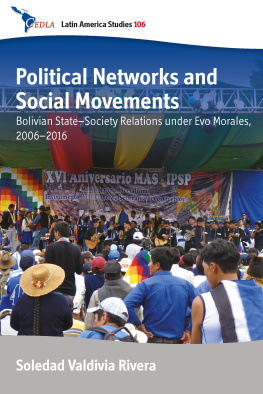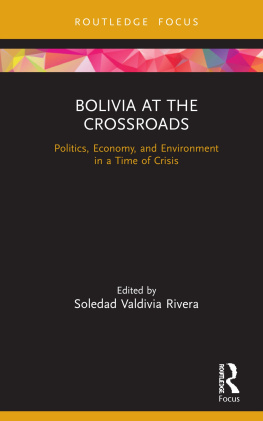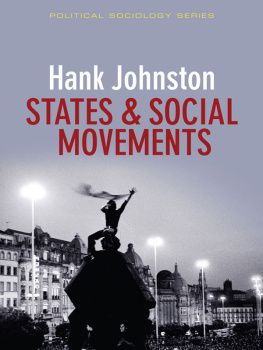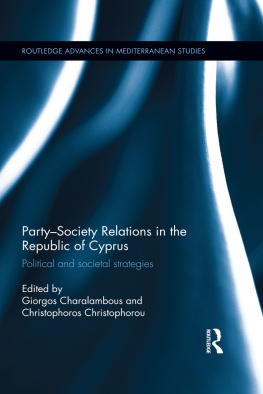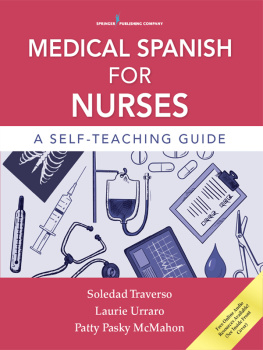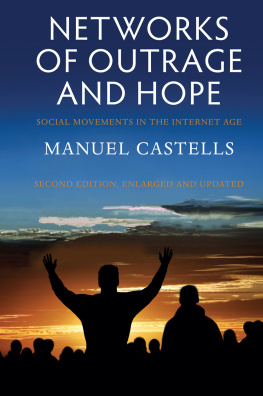Political Networks and Social Movements
CEDLA Latin America Studies (CLAS)
General Editor
Michiel Baud, CEDLA
Series Editorial Board
Anthony Bebbington, Clark University
Edward F. Fischer, Vanderbilt University
Anthony L. Hall, London School of Economics
Barbara Hogenboom, CEDLA
Barbara Potthast, University of Cologne
Rachel Sieder, CIESAS
G. Eduardo Silva, Tulane University
Patricio Silva, Leiden University
CEDLA
Centro de Estudios y Documentacin Latinoamericanos
Centro de Estudos e Documentao Latino-Americanos
Centre for Latin American Research and Documentation
CEDLA conducts social science and history research, offers university courses, and has a specialized library for the study of the region. The centre also publishes monographs and a journal on Latin America.
Keizersgracht 395397
1016 EK Amsterdam
The Netherlands / Pases Bajos
www.cedla.uva.nl
[For information on previous volumes published in this series, please contact CEDLA at the above address.]
VOLUME 106
Political Networks and Social Movements: Bolivian StateSociety Relations under Evo Morales, 20062016
Soledad Valdivia Rivera
VOLUME 105
Housing and Belonging in Latin America
Edited by Christien Klaufus and Arij Ouweneel
VOLUME 104
Enhancing Democracy: Public Policies and Citizen Participation in Chile
Gonzalo Delamaza
VOLUME 103
Dignity for the Voiceless: Willem Assiess Anthropological Work in Context
Edited by Ton Salman, Salvador Mart i Puig and Gemma van der Haar
VOLUME 102
Central America in the New Millennium: Living Transition and Reimaging Democracy
Edited by Jennifer L. Burrell and Ellen Moodie
VOLUME 101
Environment and Citizenship in Latin America: Natures, Subjects and Struggles
Edited by Alex Latta and Hannah Wittman
VOLUME 100
Urban Residence: Housing and Social Transformations in Globalizing Ecuador
Christien Klaufus
VOLUME 99
Foodscapes, Foodfields and Identities in Yucatn
Steffan Igor Ayora-Diaz
VOLUME 98
Latin America Facing China: SouthSouth Relations beyond the Washington Consensus
Edited by Alex E. Fernndez Jilberto and Barbara Hogenboom
POLITICAL NETWORKS AND SOCIAL MOVEMENTS
Bolivian StateSociety Relations under Evo Morales, 20062016
Soledad Valdivia Rivera
First published in 2019 by
Berghahn Books
www.berghahnbooks.com
2019 Soledad Valdivia Rivera
All rights reserved. Except for the quotation of short passages
for the purposes of criticism and review, no part of this book
may be reproduced in any form or by any means, electronic or
mechanical, including photocopying, recording, or any information
storage and retrieval system now known or to be invented,
without written permission of the publisher.
Library of Congress Cataloging-in-Publication Data
Names: Valdivia Rivera, Soledad, author.
Title: Political networks and social movements : Bolivian state-society relations under Evo Morales, 2006-2016 / Soledad Valdivia Rivera.
Description: New York : Berghahn Books, 2019. | Series: Cedla Latin America studies ; Volume 106 | Includes bibliographical references and index.
Identifiers: LCCN 2019006551 (print) | LCCN 2019009042 (ebook) | ISBN 9781789202205 (ebook) | ISBN 9781789202199 (hardback : alk. paper)
Subjects: LCSH: Political participation--Bolivia. | Democracy--Bolivia. | Social movements--Political aspects--Bolivia. | Policy networks--Bolivia. | Morales Ayma, Evo, 1959- | Movimiento al Socialismo (Bolivia) | Bolivia--Politics and government--2006-
Classification: LCC JL2281 (ebook) | LCC JL2281 .V34 2019 (print) | DDC 306.20984/0901512--dc23
LC record available at https://lccn.loc.gov/2019006551
British Library Cataloguing in Publication Data
A catalogue record for this book is available from the British Library
ISBN 978-1-78920-219-9 hardback
ISBN 978-1-78920-220-5 ebook
Contents
Illustrations
Figures
Table
Introduction
The presidential elections in December 2005 in Bolivia represented a milestone in the countrys history, with social leader Evo Morales being chosen as the first president of indigenous origin. The uniqueness of this situation was also reinforced by the absolute majority the Movement towards Socialism (MAS) a left-wing coalition of social movements that had chosen the coca farmer as their leader won in the vote. Since Morales came to power in January 2006, the country has been the scene of a series of reforms that have substantially transformed the relationship between state and society. Equally important is the fact that, since then, the MAS and Evo Morales have managed to consolidate a regime that has lasted for more than ten years. During this period, Bolivia has experienced significant economic growth, together with political transformations such as the formulation of a new state constitution, the implementation of redistributive policies and the nationalisation of strategic sectors. At the same time, serious questions have been raised about corruption, deficiencies in the justice system and authoritarianism.
Despite this, the MASs staying in power has equalled economic and political stability. This is important, since Morales electoral victory occurred after a period marked by an insurgence of strong social movements and a legitimacy crisis in the political system. Between 2000 and 2005, there were several episodes of social unrest, in which an increasingly structured set of social movements opposed the state, forcing U-turns in state policies as well as the resignation of two constitutional presidents on more than one occasion. The socio-political crisis in this period resulted in a scenario of ungovernability that posed serious questions to the state of democracy, twenty years after it had been reinstalled in the Andean country. The first years of the Morales government were marked by social unrest but, after the new constitution was passed, although social conflict has been pervasive, the political impasse seems to have been overcome. The high number of votes won by the MAS and its leader in the re-elections reflect the confidence the Bolivian population has in the regime and particularly in Morales as carriers and guarantors of continuity. In effect, his charismatic leadership is identified as being key to the MAS administration, and to some it is even deemed indispensable.
More recently, however, there have been signs of change. On 21 February 2016, a referendum was held asking the population whether Morales should stand in the 2019 elections. The referendum proposed a reform of the new constitution concerning the article that prohibits a second re-election. The reformation of that article would potentially prolong Morales power for two decades. Previous electoral victories gave confidence to Morales and the MAS on the referendum but a nip majority of the Bolivian people voted against the governmental plan. In that way, the referendum put an expiry date on Morales leadership, posing the question of how a political project that had grown so dependent on its political leader could continue without him. The uncertainty surrounding the stability and governability of the country as a result of the leadership vacuum Morales would leave behind was short lived: in December 2017 the Constitutional Court ruled that re-postulating as presidential candidate is an inalienable right of all citizens to elect and to be elected, enshrined by the Pact of San Jos of Costa Rica. By this means the ban on term limits has been lifted, paving the way for Morales candidacy at upcoming elections, while at the same time raising once again serious questions about the state of democracy in the country.

